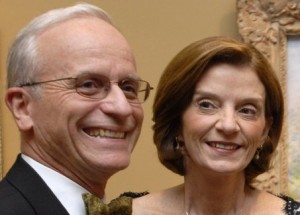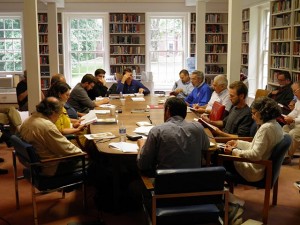The British philosopher Roger Scruton argued in a recent article that, driven by a denial that truth exists and a false notion of equality, “the modern university has no choice but to stand opposed to Western culture.” Even the little that is left of it. A broad generalization that admits of some honorable exceptions, of course, but for all intents and purposes, close enough to the simple truth.
For Catholics, this truth hits doubly hard. “Western” culture is not Catholicism or Catholic culture, to be sure. But they are so deeply intertwined that one cannot go into crisis without serious effects on the other. That’s one among the deeper reasons why even Catholic colleges and universities – again, with a few distinguished holdouts – are not much of an alternative to the general intellectual decline all around us.
So what, other than complaining all the way to the grave, is to be done? The crisis has been long brewing and will not be reversed any time soon. But some of us have been engaged, for almost a decade now, in sowing the seeds of a very different future.
I’ve described here before the Fides et Ratio seminars that transpire each summer under the auspices of the Faith & Reason Institute, the parent institution for The Catholic Thing. But their continued growth and success merit renewed attention. Since the summer of 2006, under the direction of Dr. Patrick Powers and Paul Jackson, we have been gathering together faculty, staff, administrators from Catholic institutions of higher education (with occasional outsiders) for intensive weeks of reading and arguing together, with the aim of reconnecting ourselves to the Catholic tradition and each other.
The further goal, of course, is to help energize the people who will – or will not – go on to renew the minds, hearts, and souls of the very students without whom, in the very near future, the life of thought in the Church will perish from our American landscape. And, deo volente, to reform, from within, some institutions as well.

This, barring some special outpouring of grace, is work for the long haul. Michele and Donald D’Amour, the generous donors who have supported these efforts for the past decade, have always recognized as much. As have we. Scruton makes a stark comparison based on his experiences in Eastern Europe during the Cold War, “When institutions are incurably corrupted, as the universities were corrupted under communism, we must begin again.”
What does it mean to begin again? Not to compete with campus glitz and high-tuition prestige, but to turn to basic things, real things. A number of teachers and learners – if you take the trouble to look for them – want spaces where contemplating fundamental truths is possible, as difficult as that has become at the very institutions where that activity should be the stuff of everyday life.
When we started in 2006 at Kansas Benedictine College, we were not sure where things would go. Indeed, whether they would go anywhere at all. There was a single seminar with fifteen participants. Since then, the whole project has taken off in multiple, fertile directions.
More than 400 faulty and staff from 85 institutions around the country (including some foreign nations) have passed through one or more parts of the program. We’ve held seminars in places from Thomas More College and Belmont Abbey in the East to St. Patrick’s Seminary in the West. And in between: Notre Dame, Wyoming Catholic College, St. John Vianney Seminary in Denver, among others.
In a typical summer now, we offer 5 or 6 seminars, carefully structured to have the greatest possible impact. The usual path is to start, over two years, with “Church Fathers, Doctors, and Popes.” Participants deeply read and discuss Athanasius, Basil the Great, Gregory of Nyssa, Augustine, Anselm, Bernard of Clairvaux, Albertus Magnus, Bonaventure, Aquinas, Dante, Teresa of Avila, Francis de Sales, John Henry Newman, Leo XIII, John Paul II, Benedict XVI, and hear lectures on Gregorian chant, polyphony, Renaissance music, and on sacred art (through study of the ancient basilicas).

This year, we’re also offering, for the first time, a seminar on American Catholic political philosophy – not Catholic Social Thought (a derivative of the deeper study), but an introduction to the principles undergirding Catholic thought and action in the American public square. This first installment covers the period through the Civil War; next year, we’ll bring things up to the present.
We’ve also developed two seminars aimed at other institutions crucial to creating a fuller Catholic culture: one on vocations (to marriage and the religious life), and another aimed at secondary schools.
A lot of people I meet these days assume the worst: that the Church is headed towards even rockier times and that our rich Catholic intellectual tradition is being hastened to its death, often by the very people who should be its champions.
Pray God that is not the case. But the Church has survived several periods of crisis, in which the surrounding culture collapsed and a few monasteries, centers of learning, stubbornly independent teachers and pupils have preserved what can be preserved – until more favorable conditions return. That may very well be our best course just now.
Two additional notes: Faith & Reason Institute also runs a Summer Seminar on the Free Society in the Slovak Republic (June 26 to July 4 this year) for upper-level undergraduates, graduate students, and young professionals. The application deadline is approaching. If you’re interested, just click on the ad to the right of this column.
And for everyone: The Catholic Thing will soon begin advertising a ten-day pilgrimage/study tour, right after the October Synod, in which we will discuss what emerged during that event and will visit various Catholic cultural sites in Rome and central Italy. Space will be limited, so please contact us ([email protected]) if you’d like to be put on the list to receive information.
Many grave challenges surround us. But much is also happening in preserving, confirming, and rebuilding of our faith. Be of good cheer.















